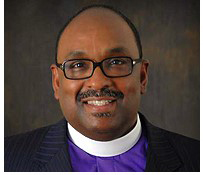RCCC calls for investment in South Campus
Published 12:00 am Thursday, March 27, 2014
CONCORD — The Rowan-Cabarrus Community College board of trustees recently passed a resolution calling for a November bond referendum in Cabarrus County with a $16 million allotment for Rowan-Cabarrus Community College.
The money would fund projects at the college’s South Campus at exit 55 off of Interstate 85. The Cabarrus campus enrolls nearly 10,000 students over the course of a year and serves both students transferring onto four-year universities and those seeking career training ranging from fine arts to motorsports management.
“In North Carolina, it’s the responsibility of the local county commission to fund the construction and maintenance of community college facilities,” Carl M. Short, chairman of the college’s board of trustees, said in a news release. “Rowan-Cabarrus Community College has been a vital contributor to the economic health of both Rowan and Cabarrus counties for many years and has long been recognized for its important role in the education and retraining of our citizens.”
Rowan-Cabarrus would use the funding to expand the South Campus and make safety and accessibility improvements. The primary focus would be the construction of an Advanced Technology Center.
“The region is dependent upon the college to provide the workforce talent and education necessary to emerge from the recession and thrive,” said Concord Mayor Scott Padgett, who also serves on the board of trustees. “In order to grow and prosper, we must diversify our economy to retain and attract high-wage, high-demand jobs.”
Applications of advanced technology — from automated manufacturing, logistics, warehousing, 3D printing, to cyber security and information assurance — are evolving as growth areas for existing businesses, facilitating a regional culture of entrepreneurship and bringing new technology-centric companies to the area. An Advanced Technology Center will address training needs for companies with high technology demand and emerging jobs through industry-recognized certifications and hands-on skills training in multiple disciplines.
“Rowan-Cabarrus is a willing and capable contributor to partnerships that bring new jobs to the area and a leader in producing graduates for existing business expansions,” said Dr. Carol. S. Spalding, president of Rowan-Cabarrus. “Our priority is to strengthen the college’s contributions through education and civic leadership.”
A building or space to house a program is only part of the equation. The college and community must invest in high quality faculty who can help develop exemplary programs that train people for sustainable careers, college officials said in the news release. Programs like information technologies, welding, machining, HVAC, electronics and electrical engineering technologies, mechanical engineering, hydraulics, pneumatics, also require industry standard equipment that is expensive. Support for this equipment, program development, faculty enhancement and facility planning is not supported by either county or state funding.
The scope of work demands resources beyond those available in the college’s current budget for comprehensive planning and design to assure a facility and programs that will provide value to local employers, the news release said.
The college would also use the funding to purchase additional land for the further expansion of South Campus.
“The campus is only 24 acres, compared to the 105 acres on North Campus. This is very small for the vibrant Cabarrus County campus,” said Padgett.
Funds would also go toward an additional exit from the South Campus parking lot. Currently the two exits feed onto the same small road. In the event of a security threat, access in and out of the campus could prove very challenging.
Recent discussions of the Cabarrus County commissioners resulted in a proposed $9 million bond allotment for the college.
“It is critical that we see the full investment of $16 million for Rowan-Cabarrus Community College,” said Padgett. “Support of the college is vital to our community’s future.”
“These funds are not going to solve all of our problems, but they will certainly help us over the next five years,” Spalding said.




